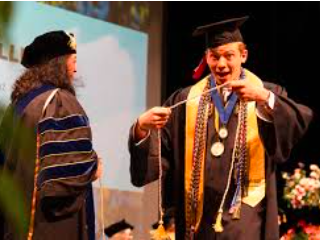For many students, the thought of advanced mathematics can feel overwhelming. The good news is that a wide range of university degrees are available that focus on other skill sets—whether you lean toward creativity, communication, or problem-solving in non-numerical ways. If you’re looking for a university degree program with minimal math requirements, several rewarding academic paths may suit your strengths and interests.
1. Communications
A degree in communications emphasizes writing, media, public speaking, and strategic messaging. Students explore how to convey information effectively across various platforms—without needing complex math skills. Careers after graduation often include public relations, broadcasting, social media management, and journalism.
2. English or Literature
Literature-based degrees are ideal for those who enjoy reading, writing, and analyzing texts. Most programs focus on critical thinking, historical context, and literary theory, with minimal or no math requirements. Graduates can pursue roles in editing, publishing, education, or content creation.
3. History
Studying history involves research, writing, and interpretation of past events. History majors often focus on understanding cultural shifts, political movements, and global change over time—primarily through reading and analysis, rather than calculations or statistics.
4. Fine Arts
Students pursuing a degree in fine arts often specialize in visual arts, design, or performance. These programs are centered around creativity and craftsmanship, and typically involve little to no math beyond basic budgeting or materials planning.
5. Political Science
Political science programs explore government systems, public policy, and international relations. While some courses may touch on data interpretation, the focus is generally on analysis, debate, and understanding institutions, making it a good fit for students less inclined toward math.
6. Sociology
Sociology examines social structures, group behavior, and societal issues. While a few research courses may introduce statistics, many institutions offer paths within sociology that emphasize theory and qualitative analysis instead.
7. Education (Early Childhood or Arts-Focused)
Degrees in education—especially in early childhood, language arts, or creative subjects—often concentrate on teaching strategies, child development, and learning theory. These areas typically do not demand advanced mathematical knowledge.
8. Foreign Languages
Language programs build skills in reading, writing, translation, and cultural understanding. Most language degrees do not require math and are ideal for students who enjoy global perspectives and communication.
Choosing the Right Program
Before selecting a degree, check the curriculum at your university of interest. Even within a major that usually doesn’t require math, course requirements can vary between institutions. Look for programs that allow flexibility or provide math alternatives, such as logic or data literacy.
Final Thoughts
Not every academic path needs to include algebra or calculus. If your strengths lie in writing, analysis, creativity, or languages, there are plenty of university degrees available that align with your goals while minimizing math requirements. With the right program, you can build a fulfilling career that plays to your unique talents—no complex equations necessary.






